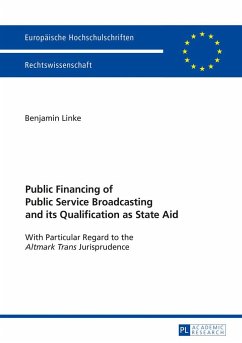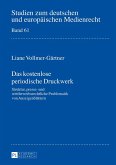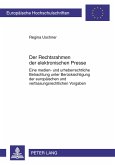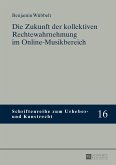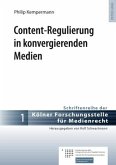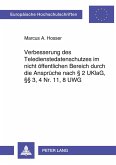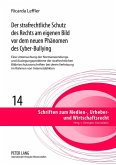The book sheds light on the demands of Art. 107(1) TFEU regarding public funding of public service broadcasting (PSB). Broadcasting is of particular importance in the modern structure of democracy. PSB provides broadcasting services that are of higher quality and of more cultural value to the community than services provided by commercial broadcasters. To ensure the operation of PSB, Member States of the European Union have introduced various measures to support broadcasters. These support measures have to comply with European State aid law, which seeks to prevent overcompensation. In its Altmark Trans-ruling, the ECJ laid down specific criteria under which compensation for services of general economic interest (SGEI) should not be considered State aid in the sense of Art. 107(1) TFEU. The author focuses on the Altmark-criteria. Apart from Art. 107(1) TFEU, he also looks at the effect of the Amsterdam Protocol, which is occasionally argued to have a significant impact on the application of the State aid rules to PSB.
Hinweis: Dieser Artikel kann nur an eine deutsche Lieferadresse ausgeliefert werden.
Hinweis: Dieser Artikel kann nur an eine deutsche Lieferadresse ausgeliefert werden.

